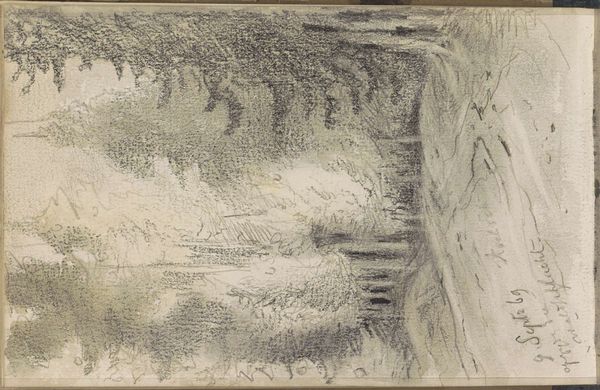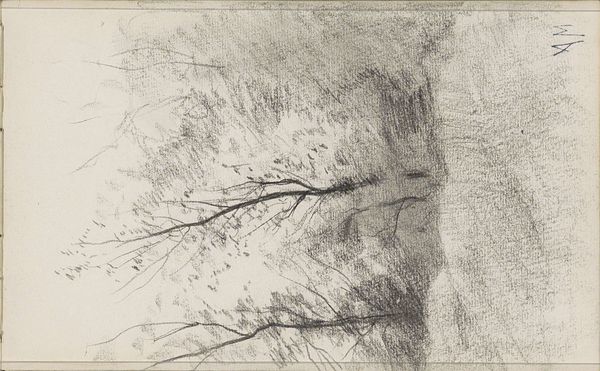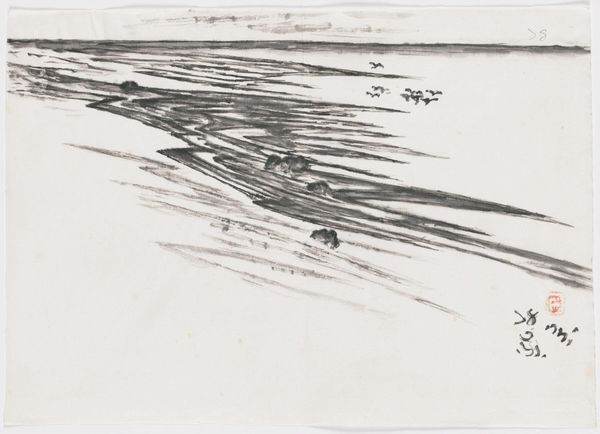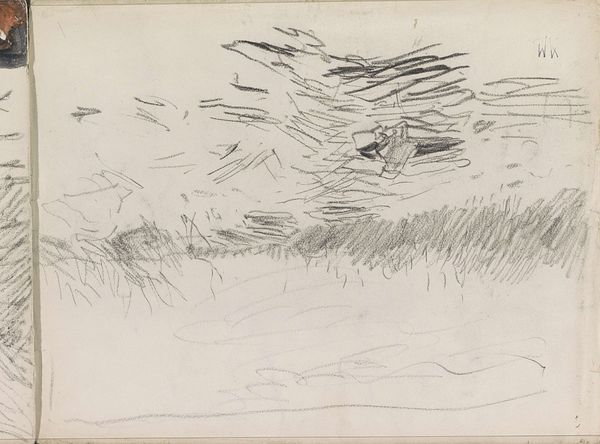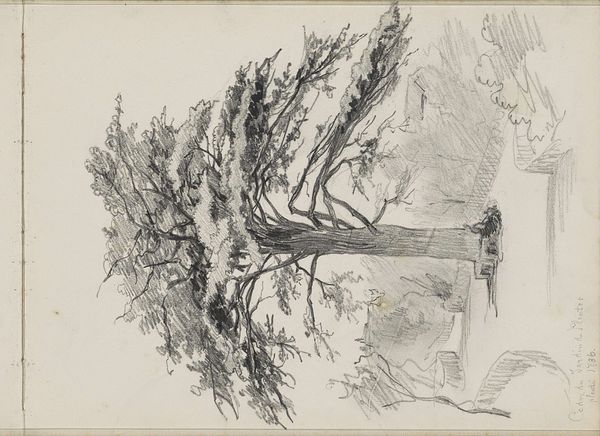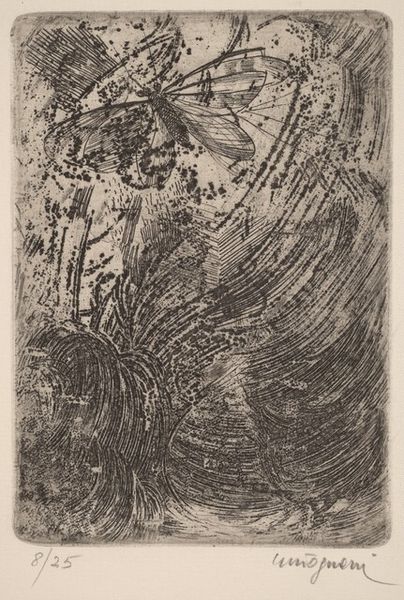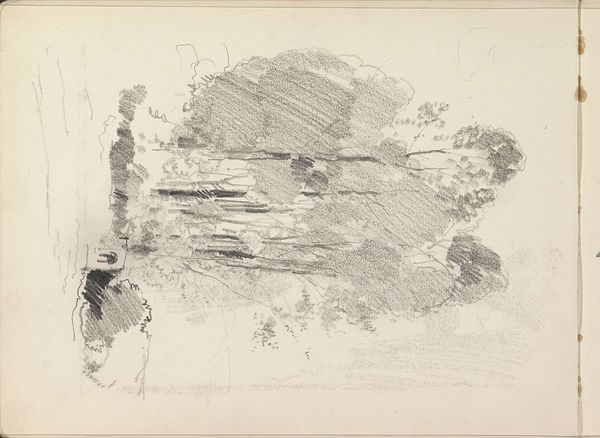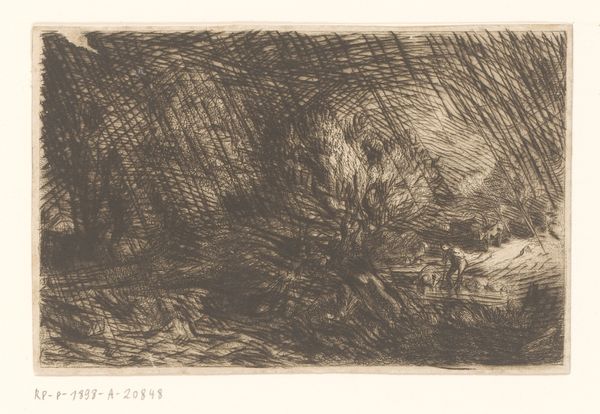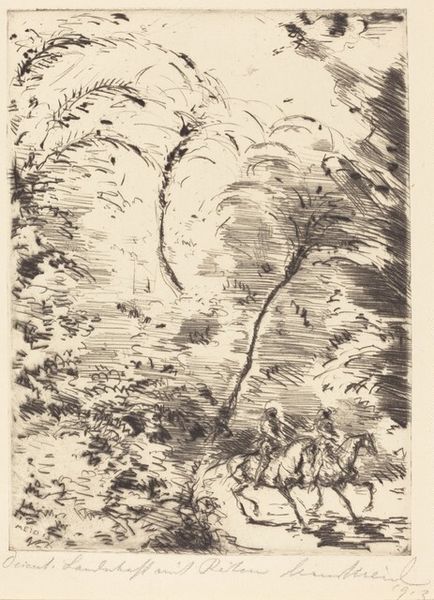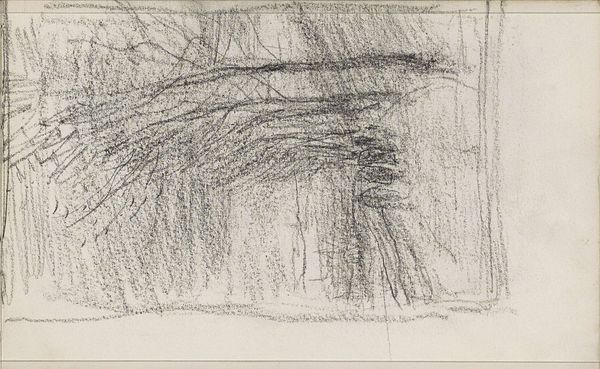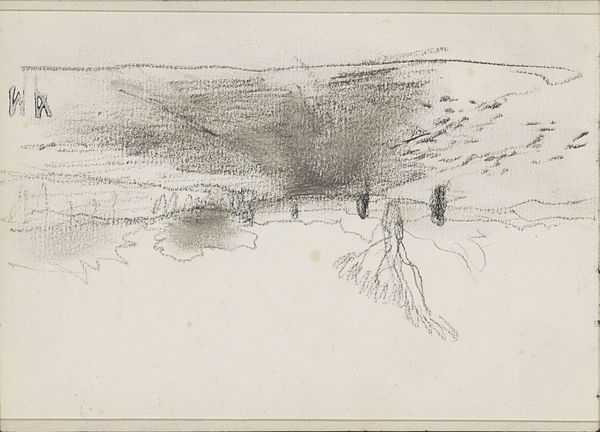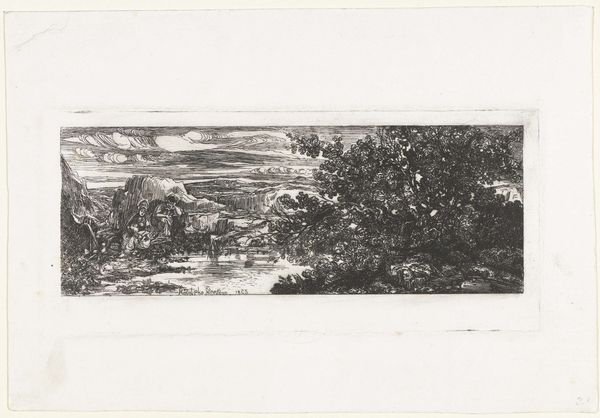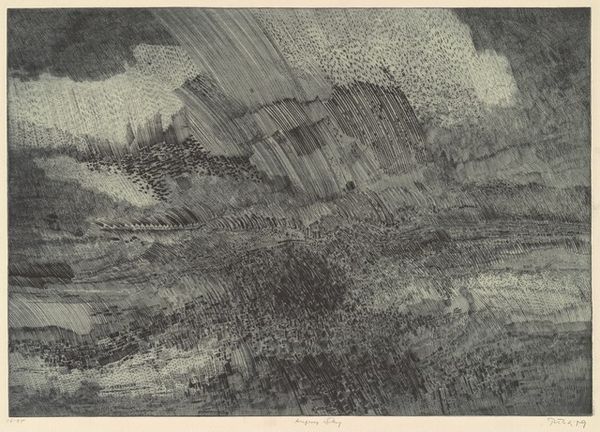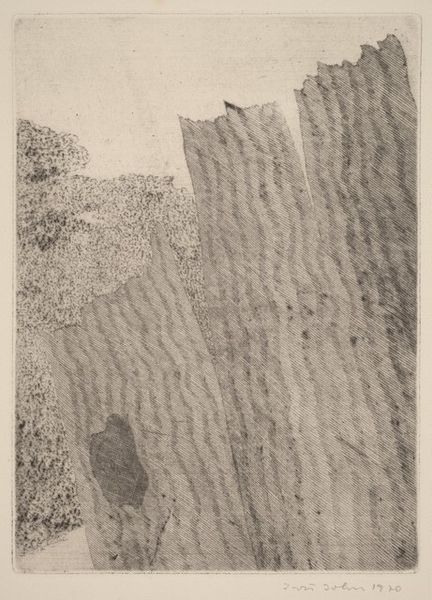
print, etching
#
abstract-expressionism
# print
#
etching
#
landscape
#
abstraction
#
line
Copyright: National Gallery of Art: CC0 1.0
Curator: Well, this is quite something, isn't it? We're looking at Gabor Peterdi's "Angry Wave" from 1959, a powerful etching. What strikes you about it initially? Editor: Chaos, immediately. I see turmoil, the almost violent energy of raw nature unleashed. The density of lines—it feels overwhelming, like being caught in the heart of a storm. Curator: It's interesting you say that, given the context. The late 1950s were marked by anxieties about Cold War tensions and the threat of nuclear conflict. Artists often turned to abstraction to express these fears, and Peterdi's "Angry Wave," with its suggestion of uncontrolled power, resonates with those concerns. The work was created as part of a larger series exploring man versus nature during an industrialised society. Editor: The wave motif itself is potent. Throughout history, across countless cultures, the sea is the source of life but a reminder of humanity's vulnerability against elemental forces. I wonder if the artist tapped into the long human memory and experience of this primordial fear. Note also that the wave lacks any specific cultural context. It is any angry wave, in all of our memories. Curator: I agree completely. This connects, of course, to the rise of Abstract Expressionism and its aims, focusing on universal emotional experiences. Although lines feature prominently, the total lack of perspective, the ambiguous and almost unreadable middle ground of the wave, adds to the emotion and psychological weight. There's little respite or place to breathe, adding to the sense of claustrophobia, doesn't it? Editor: It certainly does. But perhaps that is the whole point. We cannot find safety. We can't look at this work and imagine calm seas or being outside of the churning torrent of energy. Curator: Precisely. And in the social context, the post-war viewer certainly would understand that the angry wave could just as easily represent an economic tsunami or political turmoil. What I find fascinating is how Peterdi managed to make such a universal statement using such relatively simple means. Editor: Indeed. And in my view, this work does that through its emotional honesty, laying bare the disquiet of the era and our deeper ancestral fears, all mirrored in the awesome force of an "Angry Wave".
Comments
No comments
Be the first to comment and join the conversation on the ultimate creative platform.
